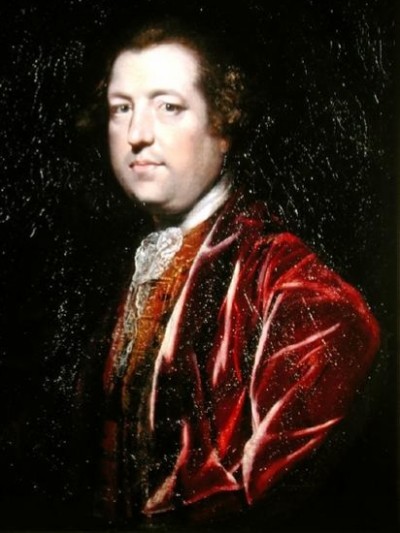The Townshend Acts (or the Townshend Act) refers to a set of taxes passed by Parliament in 1767 after the Stamp Act caused rebellion and riots on both sides of the Atlantic.
The colonists especially were infuriated and boycotted British goods.
The ring leaders of the boycott were Samuel Adams and John Dickinson. Their actions forced King George to repeal the Stamp Act.
Directly afterwards, in Parliament, a man named Charles Townshend, suggested what is now known as the Townshend Acts, taxing the colonies for tea, glass, lead, paints, and paper.

Charles Townshend, painted by Sir Joshua Reynolds around 1765<. There’s a lot of Charles Townshends. It was difficult to find the right one. | Image is in the public domain.
The Stamp Act, which taxed an even wider selection of products, had been imposed to service the debt Britain had accumulated during the French and Indian War, which King George and most of Parliament felt had been fought to the great benefit of the colonists. Thus, they believed the colonies should help carry the expenses of the war.
Thus, the colonies could not object to these taxes, being much less than the Stamp Act and simply paying for Britain’s defense of the colonies. Or so the king thought; the colonies completely objected. When the king sent his troops over to make sure they paid these new taxes, it stirred up opposition and boycotts.
The Townshend Acts and the Boston Tea Party
The Townshend Acts were repealed early in 1773, but their taxes on tea remained in force. In fact, the colonists had been boycotting British tea since their passing in 1767. So when the Tea Act, passed in May of that year, allowed the Dutch East India Company to deliver tea at reduced tax rates and without duties, it put the colonists over the edge.
In November, when a large shipment of East India Company tea arrived, colonists dressed up as Indians threw thousands of pounds worth of British tea into Boston harbor, an event we know as the Boston Tea Party.


